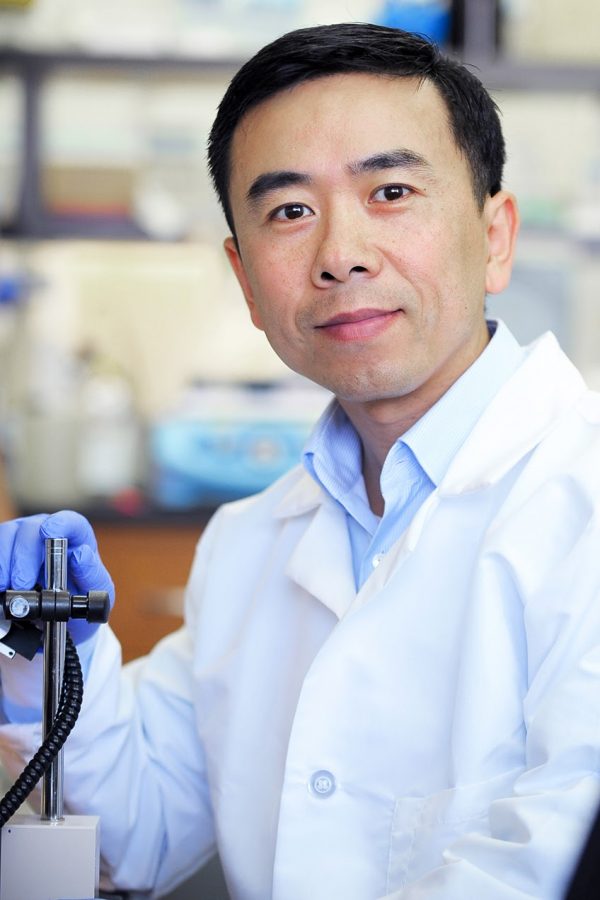Yong Yu, Ph.D., an associate professor of biological sciences at the St. John’s College of Liberal Arts and Sciences, was recently awarded a $1.33 million research grant from the National Institutes of Health (NIH) to support his kidney disease research through the summer of 2025.
Through this grant, entitled, “Ion Channel Function and Regulation of the Polycystin-1/2 Complex in Kidney Physiology and Polycystic Kidney Disease,” Yu will further investigate the relationship between cell membrane proteins and a genetic kidney disease known as polycystic kidney disease (PKD). According to Yu, PKD is one of the most common genetic disorders found in human beings.
As Principal Investigator (PI) of the research project at St. John’s, Yu will conduct research at his lab, the “Yu lab,” located in St. Albert’s Hall. The other portion of the research will be performed by another PI, Feng Qian, Ph.D., of the University of Maryland.
“The $1.3 million fund we have received is for us to conduct the molecular, biochemistry and biophysical experiments at SJU,” Yu told the Torch in an email interview. “At the same time, Dr. Qian will conduct animal studies with the other half of the grant. The two labs will closely collaborate on this project.”
This type of grant, formally known as a Research Project Grant (R01) is the original grant mechanism used by the NIH and is awarded to support specific projects initiated by investigators in their specialty areas.
For Yu, who has been with St. John’s since 2012, the opportunity to pursue research under this grant means that his lab will be able to examine the functions of the two essential cell membrane proteins (polycystin-1 and polycystin-2) that are linked to PKD.
“With this support, we will be able to study the molecular mechanism of the functions of these proteins and further test our discoveries with model animals,” Yu said. “We expect the results we obtain in this study will significantly enhance our understanding of the pathogenesis of PKD and provide guidance in developing new treatments.”
Since biological research requires equipment, supplies and researchers themselves, Yu says the process can be costly.
“Without grant funding, it is impossible to do it,” he said. “My lab has been funded by the National Institutes of Health (NIH), the PKD Foundation, and the Baltimore PKD Center, now the new R01 will provide years of support to the research of my lab.”

According to Yu, this $1.33 million grant is one of the biggest grants the University has received in the STEM field in recent years. It will not only benefit PKD research, but will also help students at both the undergraduate and graduate levels become more involved in faculty research at the University.
“Currently, three Ph.D. students, one MS student, and two undergraduate students are working in the lab,” Yu said. “These students will be key players in this project. The grant will also support one postdoctoral research scientist who will join my lab in September 2020.”
Within the last 10 years, roughly 16-18 external grants have been awarded to St. John’s faculty in the biological sciences department from organizations like the NIH and National Science Foundation, according to Dianella Howarth, professor and chair of the biological sciences department at St. John’s. Currently, Howarth added, faculty in the biological sciences have active grants with original awards that total over $5 million.
“Dr. Yu’s success in this granting program is a testament to the world class research that he does and it will also make it easier for other faculty at SJU to be competitive for these large research grants,” Howarth said.










